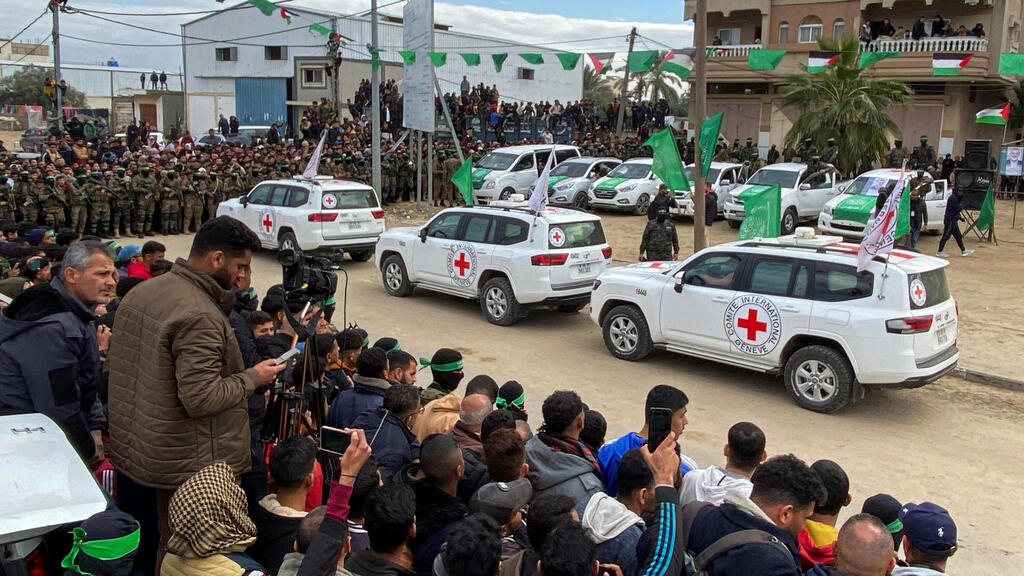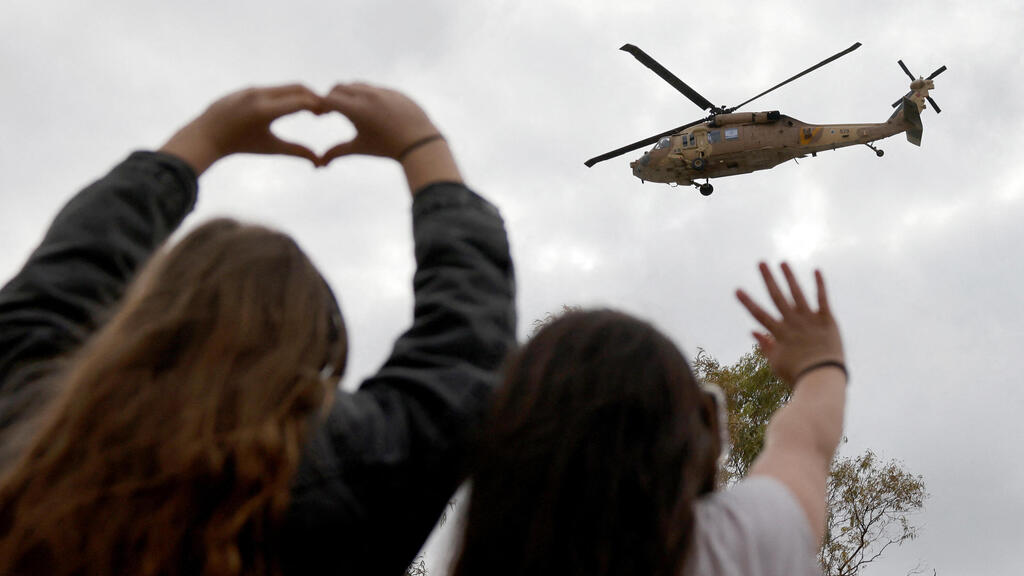The hostages who returned to Israel in phase one of the hostage deal suffered extreme weight loss, in some cases up to 40% of their body weight, leading to severe nutritional deficiencies and even muscle bleeding, Dr. Hagar Mizrahi, head of the Health Ministry’s medical division, said Wednesday.
Speaking to reporters, she described "severe nutritional deficiencies and muscle mass loss, to the extent that some of the returnees require continued physiotherapy to rebuild their muscles."
According to Mizrahi, freed hostages are receiving ongoing treatment even after being discharged from hospitals, with care provided at dedicated outpatient clinics and community health care facilities. "Even in cases where the weight loss didn’t seem dramatic, we still saw significant muscle mass loss," she said, noting that the cramped conditions in which they were held prevented movement, further exacerbating the issue.
Dental problems among hostages and their families
Mizrahi added that some of the returned hostages suffered from infectious diseases, though not in extreme cases, and were treated mainly through proper hygiene and nutrition. Some also had to drink dirty water due to a lack of clean drinking water, she said. Additionally, freed hostages experienced eye and dental problems. "We've seen a need for dental treatments. Some had broken teeth, which required further care," she explained. Mizrahi also noted that stress and mental strain affected the dental health of some hostages' family members.
She said the Health Ministry is demanding that the Red Cross ensure the remaining hostages receive proper nutrition, including full meals and vitamin supplements. "I am deeply concerned that the longer we wait for the hostages to return home, the worse their medical condition will become. Everyone still in captivity must be brought back — they are in life-threatening danger."
Get the Ynetnews app on your smartphone: Google Play: https://bit.ly/4eJ37pE | Apple App Store: https://bit.ly/3ZL7iNv
The Health Ministry is currently collecting testimonies from freed hostages. Mizrahi also addressed criticism regarding a previous report sent to the United Nations without prior approval from the hostages’ families. "This time, we are in the process of gathering materials with the families’ consent, and we may be able to provide more detailed information on specific issues," she said.
Vitamin deficiencies, spontaneous muscle bleeding
Medical teams also found a significant drop in vitamin levels among the returnees. "Families of freed hostages have shared stories with the media about their poor nutrition — often less than 50% of the daily intake needed. In many cases, their diet consisted mostly of empty carbohydrates, with little to no protein, fats, vegetables or fruits," Mizrahi said. "This may sound minor, but it is not — we are seeing clear medical consequences from this."
For example, some hostages suffered from a severe deficiency in vitamin C, which plays a crucial role in the body. "One particularly concerning case involved spontaneous muscle bleeding due to a lack of vitamin C, leading to a drop in hemoglobin levels. Clinically, we believe these issues developed during captivity and were not properly treated. Even now, we see these deficiencies in lab tests. At least one, if not more, of the returnees experienced severe pain as a result. Such bleeding leads to blood loss, which is a clear sign of malnutrition."
Mental health and continued monitoring
Regarding the psychological state of the freed hostages, Mizrahi said she was deeply impressed by their resilience, but cautioned that this does not guarantee long-term stability. "Some have returned to devastating news — about their families, their communities. Many now face the challenge of rebuilding their lives. The effects of captivity will stay with them for a long time."
She praised the medical care provided to the hostages upon their return, including treatment for family members who had neglected their own health while fighting for their loved ones' release. "Hospitals did an excellent job treating families who had sacrificed their own well-being during this ordeal, and I know this support is continuing in the community," she said.
The Health Ministry does not consider hospital discharge as the end of care, she emphasized. "We continue to monitor their condition, and we have established dedicated frameworks within the community for their ongoing treatment."
Mizrahi also addressed the allocation of hostages to different hospitals, a matter that had raised questions. "Naturally, all hospitals wanted to take part in receiving the returnees," she said. "The Health Ministry determined placement based on various considerations, including medical needs and continuity of care. Overall, the distribution was successful in terms of both suitability and quality of treatment."
The Health Ministry also commented on the return of hostages' remains and the incident in which Hamas handed over the body of a Palestinian woman instead of that of Shiri Bibas. "By the second week [of releases], we had adjusted our operations to meet the military's needs. Two forensic doctors were sent to the Kerem Shalom crossing to assist the military in the initial examination and identification of hostage remains," Mizrahi said. "We will continue to do this as needed, remaining as flexible as possible in the hope that the remaining 59 hostages will return home soon — some to their families, and others, tragically, for burial in Israel."



